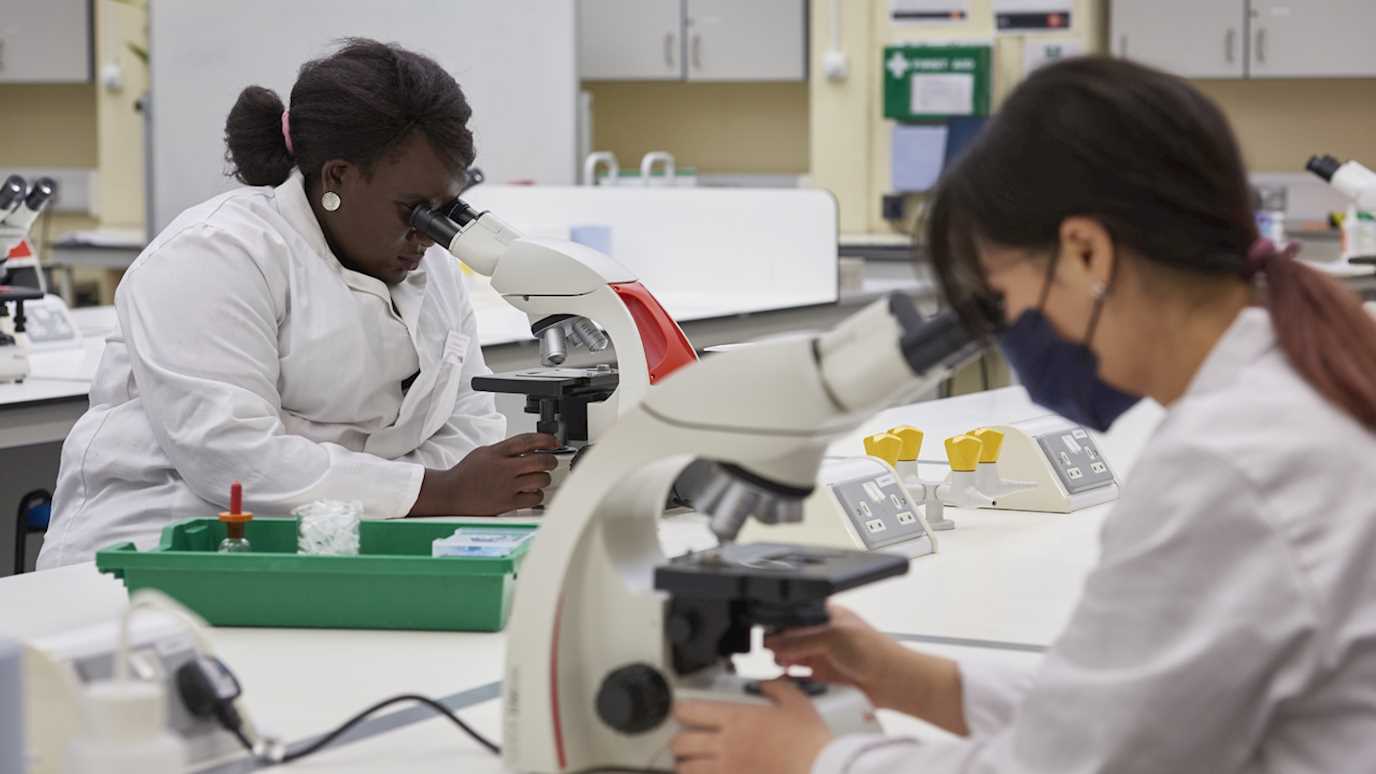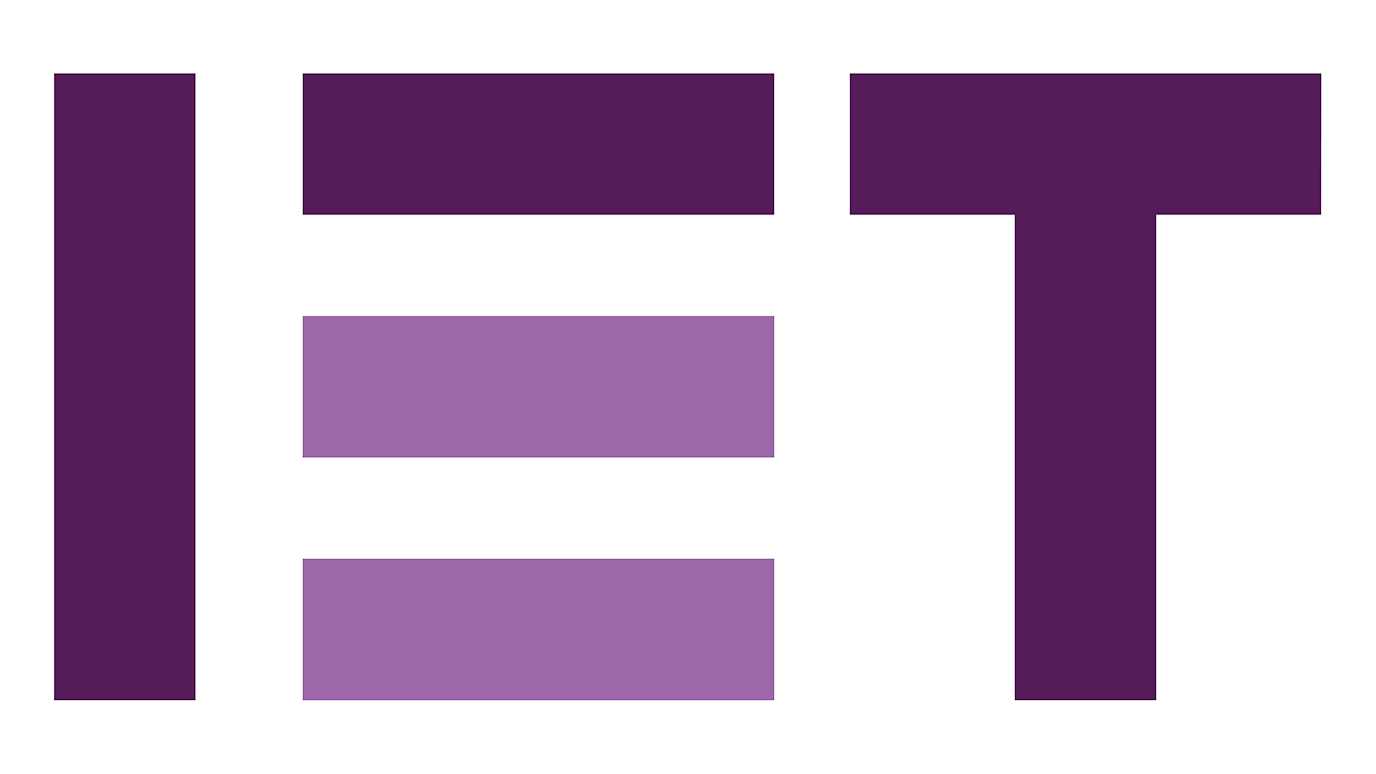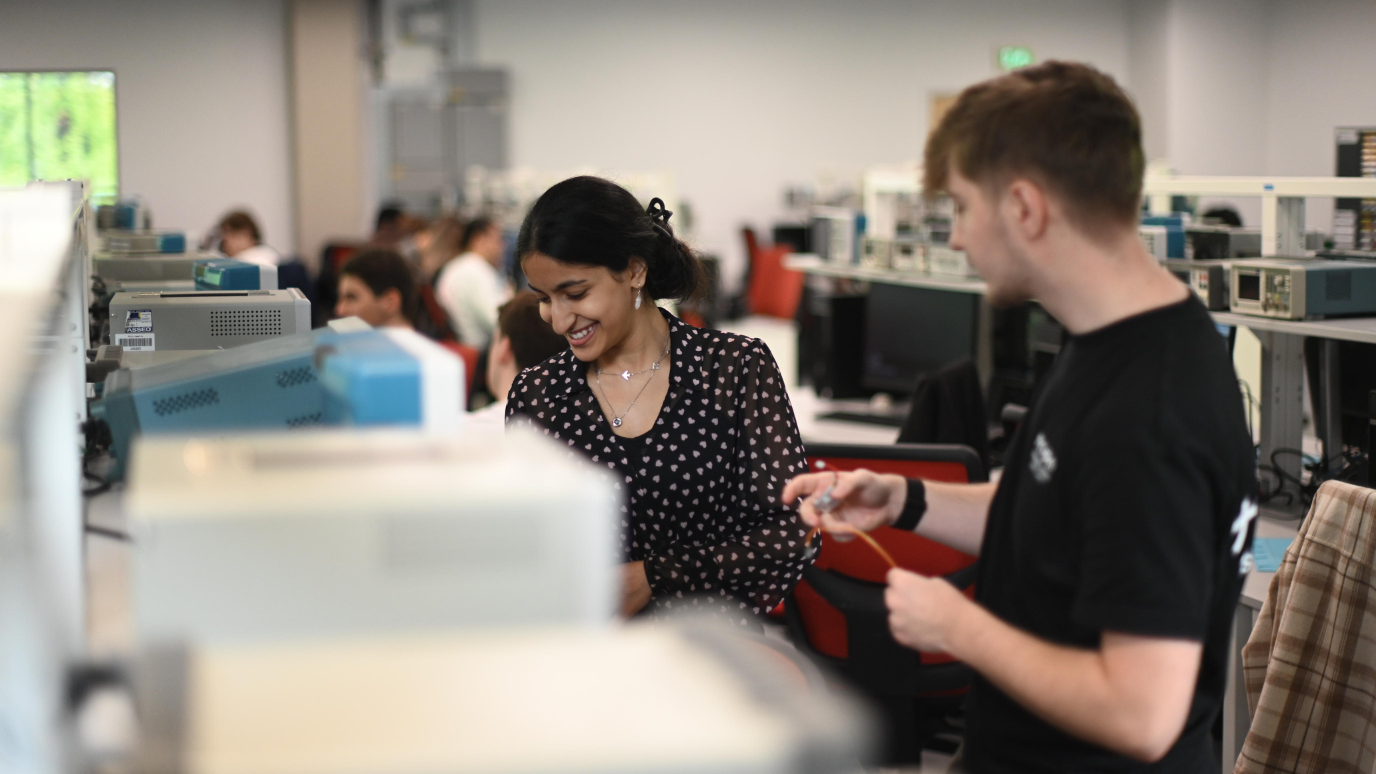Course options
Key information
Duration: 4 years full time
UCAS code: H661
Institution code: R72
Campus: Egham
The course
Electronic Engineering with a Year in Industry (BEng)
The digital revolution is changing our lives, and technological advancements are developing at an incredible pace. Electronic engineers are at the forefront of this revolution, helping to create the smart devices we use every day and tackle issues such as information security, healthcare and energy sustainability.
Study Electronic Engineering with a Year in Industry at Royal Holloway and develop the skills you need to become a part of this exciting sector. You’ll gain real industry experience, making invaluable contacts you can take into your future career.
Build a robust transferable skillset based on research-led teaching, where you’ll learn from renowned academics in a variety of fields. You’ll enjoy a blend of practical and theoretical study, working in groups and individually with one-to-one support from your own Personal Advisor.
You’ll study in a purpose designed building, where £20 million worth of investment is providing state-of-the-art equipment and facilities, including collaboration and research spaces.
This four year degree will equip you with the knowledge, skills and experience you need to build a career in an exciting, fast-moving sector, where real-world skills shortages present numerous opportunities for ambitious graduates. Pursue your interest in the dynamic field of Electronic Engineering at Royal Holloway.
- A degree course structured to develop ingenuity, invention and product development skills.
- Enjoy a blend of practical and theoretical study, working in groups and individually with one-to-one support from your own Personal Tutor.
- On your third year placement you will develop your skills and gain an insight into industry.
- Develop your interests through a number of optional course units in your final year.
- Gain commercial experience and increase your career prospects.
From time to time, we make changes to our courses to improve the student and learning experience. If we make a significant change to your chosen course, we’ll let you know as soon as possible.
Course structure
Core Modules
Year 1
-
Working in groups, you will carry out a project using methods and techniques that parallel industrial practice. You will develop prototypes which solve one or more elements of a given issue. You will look at digital logic in the context of combinational and sequential logic with discrete logic gate circuits (AND, NOT, OR, NAND, XOR, XNOR) and consider how their responses can be modelled in practice using Boolean algebra, truth tables, De Morgan's theorem and Karnaugh maps. You will also become familiar with the professional team working attitudes and skills required to take projects from inception to the fabrication of a final product prototype.
-
In this module you will develop an understanding of programming in C++. You will learn how to use mathematical and computer-based models to solve electronic engineering problems and how to apply quantitative methods in C++. You will look at the concept of a computer program and compilation in the context of objective-orientated programming, and examine the digital representation of numbers, user interfacing, printing to screen, iterative and conditional statements, and error handling.
-
The aim of this module is to provide theoretical and practical knowledge of electronic components and their use in circuits. This module covers the electrical properties of both passive (including resistors, capacitors, inductors) and active electronic components (including diodes, photo diodes, LEDs, transistors, ICs, opto-isolators, opto-couplers) and how they are typically used in practical circuits during laboratory sessions. The design and analysis of analogue circuit behaviour is covered in the context of the use of phasors to represent voltage-current phase differences, transient and steady-state design and analysis of passive and active filters, time and frequency domain representations of the small signal responses of amplifier circuits.
-
The aim of this module is to provide an introduction theoretical and practical knowledge of communications engineering. In terms of indicative content, this module will include the description of a signal and its characterisation in the time and frequency domains, considerations, introduction to analogue and digital signals; linear time invariance, random variables, Gaussian random processes, probability, thermal noise; introduction to modulation techniques including RF modulation, spectral and power considerations, pre-emphasis and de-emphasis, baseband recovery, error detection and correction, PLLs, multiplexing; introduction to digital signal transmission including sampling theorem, a2d and d2a conversion and quantisation, numbers of bits, error bit probabilities, introduction to digital signal processing.
-
In this module you will develop an understanding of how the internet works and its key protocols. You will look at the technologies used for web development, including scripting languages and their potential for adding dynamic content to web sites and applications. You will consider the role of web services and related technologies, and will examine the fundamental principles of network security.
-
In this module you will develop an understanding of how to solve problems involving one variable (either real or complex) and differentiate and integrate simple functions. You will learn how to use vector algebra and geometry and how to use the common probability distributions.
-
In this module you will develop an understanding of how to solve problems involving more than one variable. You will learn how to use matrices and solves eigenvalue problems, and how to manipulate vector differential operators, including gradient, divergence and curl. You will also consider their physical significance and the theorems of Gauss and Stokes.
-
This module will describe the key principles of academic integrity, focusing on university assignments. Plagiarism, collusion and commissioning will be described as activities that undermine academic integrity, and the possible consequences of engaging in such activities will be described. Activities, with feedback, will provide you with opportunities to reflect and develop your understanding of academic integrity principles.
Year 2
-
In this module you will move from prototype design to product creation. Working in groups, you will take on a specific management function within the context of industrial practice. You will use the results of analysis and apply technology by implementing engineering processes to solve engineering problems. You will demonstrate the ability to use relevant materials, equipment, tools, processes or products and use creativity and innovation in a practical context to establish an innovative solution.
-
The aim of this module is to provide theoretical and practical knowledge of software engineering for electronics. This module introduces software engineering processes including the software lifecycle and the techniques used to produce and manage complex, fit-for-purpose, safe, large, cost-effective software systems in practice from both a technical and non-technical point of view. The concepts of software design, analysis and creation will be explored in the context of real-world examples and software architectures.
-
The aim in this module is to understand the mathematical interactions that the combination of various system types impose upon signals and their conveyance in communication applications, quantifying the interplay of deterministic cost factors such as bandwidth, energy, power and interference.
-
The aim of this module is to provide theoretical and practical knowledge in control engineering. This module will make extensive use of MATLAB and the control toolbox in the context of solving control engineering problems and its indicative content includes the step response of first and second order systems and the effect of varying the time constant on overshoot and settling times, the use of bode plots, root locus, Nyquist plots, error estimation. Practical control systems will be explored theoretically and practically.
-
The aim of this module is to provide theoretical and practical knowledge on the materials that underpin electronic devices. The indicative content for this module encompasses the solid-state physical macro- and nano-scale properties of solid conductor, insulator, semiconductor and optoelectronic materials that make them useful in electronic devices, their structures, the behaviour of electrons, electrical conduction, lattice vibration, thermal conduction, how dopants are used, and their interaction with light where appropriate. Existing electronic materials as well as future deveopments will be explored.
-
Analogue Electronic Systems covers electronic engineering in content to extend and deepen your knowledge of electronic circuits and systems
-
This module introduces the full and holistic life cycle analysis in relation to electronic products and components, their environmental impact and sustainability. You will develop an understanding of closed loop technology renewable and sustainable technologies and challenges, motivators for sustainable engineering and the notion of ‘green engineering’. Ethical and social impact of engineering and technology will be covered together with real-world case studies.
Year 3
-
You will spend this year on a work placement. You will be supported by the Department of Electronic Engineering and the Royal Holloway Careers and Employability Service to find a suitable placement. This year forms an integral part of the degree programme and you will be asked to complete assessed work. The mark for this work will count towards your final degree classification.
Year 4
-
In this module you will engage in theoretical and practical work on an agreed specific area relevant to electronic engineering. This will usually be a prototype that demonstrates the feasibility of a product or a fully functioning prototype depending on the nature of the topic itself. You will be allocated a supervisor and progress will be monitored against the specification in terms of implementation and testing as appropriate.
-
In this module you will develop an understanding of the scientific principles underpinning practical signal processing. You will look at the mathematics behind signal processing and consider new and emerging technologies within the field. You carry out practical work in digital filter design involving the use of MATLAB.
-
In this module you will develop an understanding of modern techniques used in company management to tackle the challenges of the business sector. You will look at company management structures, company finance, statuary requirements, human resource management, project management techniques, managing risks, health and safety requirements, and how to deal with problems that arise during the project lifecycle. You will consider the role of codes of practice and industry standards, and examine relevant legal requirements governing engineering activities.
-
This course module will help you develop your knowledge and understanding of advanced digital systems design. You will learn the principles of designing digital logic circuits, hardware description languages and control unit design, acquire the skills to design controllers from written specifications, and evaluate and make decisions about specific digital system designs.
-
Optional Modules
Below is a taster of some of the exciting optional modules that students on the course could choose from during this academic year. Please be aware these do change over time, and optional modules may be withdrawn or new ones added.
Year 1
-
All modules are core
Year 2
-
All modules are core
Year 3
-
All modules are core
Year 4
-
In this module you will develop an understanding of a range of renewable energy generation concepts. You will look at technologies such as wind generators, solar generation, hydro and marine generation concepts, geothermal dynamics and biofuels. You will consider the different sources of primary energy as well as the energy conversion and electricity generation principals that are exploited. Using your engineering skills, you will build your own renewable micro-generators.
-
In this module you will develop an understanding of voice synthesis, recognition and processing in the context of present-day and future engineering systems that make use of a voice input or output. You will look at the synthesis of human speech and singing in terms of the sound source and sound modifiers in practice to create electronic voice signals. You will consider standard voice processing techniques, used, for example, to enhance speech quality and to remove background noise and improve perceived voice quality. You will also examine techniques used for automatic speech recognition, such as Apple's 'Siri' system.
-
In this module you will develop an understanding of the human factors in healthcare engineering. You will look at critical safety issues in healthcare engineering and material compatibility in the context of implantable devices. You will consider the operation of systems such as eye trackers, hearing aids, cochlear implants, pacemakers, wearable health monitors and examine the role of assistive technologies, electronic enhancement for condition diagnosis, medical robots and drug delivery control.
-
Teaching & assessment
All taught modules are worth 15 credit units and there are eight of these in all years except the final year (year 4), where there is an individual project worth 30 credit units.
In many modules you will carry out practical project work, involving problem-solving using theory developed within the module and electronic circuit building and/or software skills as appropriate. Teaching activities will include lectures, workshops and seminars, and practical project work will be carried out in groups and individually in purpose-built thinking and fabrication laboratories.
Various assessment methods will be used including examinations for theoretical subjects, formal presentations, reports and practical demonstrations for project work with an additional viva voce examination for final year individual projects. You will be expected to review material after lectures to support your learning and to preview scripts before coming to laboratory sessions.
Excellent written and verbal communication skills are highly valued and sought after in the industrial workplace and are essential for effective group working. You will develop these as part of project-based work and will be assessed formally on them.
All students will have an allocated Personal Advisor as someone with whom any issues can be discussed to enable appropriate advice and help to be given as appropriate.
Entry requirements
A Levels: ABB-BBB
Required subjects:
- A-level in Mathematics
- At least five GCSEs at grade A*-C or 9-4 including English and Mathematics.
- Select your qualification
- International Baccalaureate
- BTEC National Extended Diploma
- BTEC National Diploma
- BTEC National Extended Certificate
- Welsh Baccalaureate
- Scottish Advanced Highers
- Scottish Highers
- Irish Leaving Certificate
- Access to Higher Education Diploma
- T-levels
English language requirements
All teaching at Royal Holloway is in English. You will therefore need to have good enough written and spoken English to cope with your studies right from the start.
The scores we require
- IELTS: 6.5 overall. No subscore lower than 5.5.
- Pearson Test of English: 61 overall. No subscore lower than 51.
- Trinity College London Integrated Skills in English (ISE): ISE III.
- Cambridge English: Advanced (CAE) grade C.
Country-specific requirements
For more information about country-specific entry requirements for your country please visit here.
Undergraduate preparation programmes
For international students who do not meet the direct entry requirements, for this undergraduate degree, the Royal Holloway International Study Centre offers following pathway programmes designed to develop your academic and English language skills:
- International Foundation Year – for progression to the first year of an undergraduate degree
- International Year One - for progression to the first year of an undergraduate degree
Upon successful completion, you can progress to this degree at Royal Holloway, University of London.
Your future career
Electronic Engineering is an exciting, rapidly expanding sector where real-world skills gaps present numerous career opportunities for graduates. You’ll graduate with excellent employment prospects, and a transferable skillset geared towards securing employment in Electronic Engineering and other related sectors. You’ll gain invaluable work experience during your year in industry, honing your skills and developing contacts you can take on to your future career.
Royal Holloway, University of London is located within the South East regional hub of electronic businesses, giving you the chance to secure internships, student placements and employment in some of the top UK-based technology companies.
The Department of Electronic Engineering maintains a close connection with industry advisors, meaning that our students benefit from industry-relevant knowledge and skills.
Fees, funding & scholarships
Home (UK) students tuition fee per year*: £9,535
The fee for your year in industry will be 20% of the tuition fee for that academic year.
EU and international students tuition fee per year**: £29,900
The fee for your year in industry will be 20% of the tuition fee for that academic year.
Other essential costs***: There are no single associated costs greater than £50 per item on this course.
How do I pay for it? Find out more about funding options, including loans, scholarships and bursaries. UK students who have already taken out a tuition fee loan for undergraduate study should check their eligibility for additional funding directly with the relevant awards body.
*The tuition fee for Home (UK) undergraduates is controlled by Government regulations. This figure is the fee for the academic year 2025/26 and is shown as a guide. The fee for the academic year 2026/27 has not yet been announced.
**This figure is the fee for EU and international students on this course in the academic year 2026/27.
Royal Holloway reserves the right to increase tuition fees annually for all students. For further information see fees and funding.
*** These estimated costs relate to studying this particular degree at Royal Holloway during the 2026/27 academic year. Costs, such as accommodation, food, books and other learning materials and printing, have not been included.

























